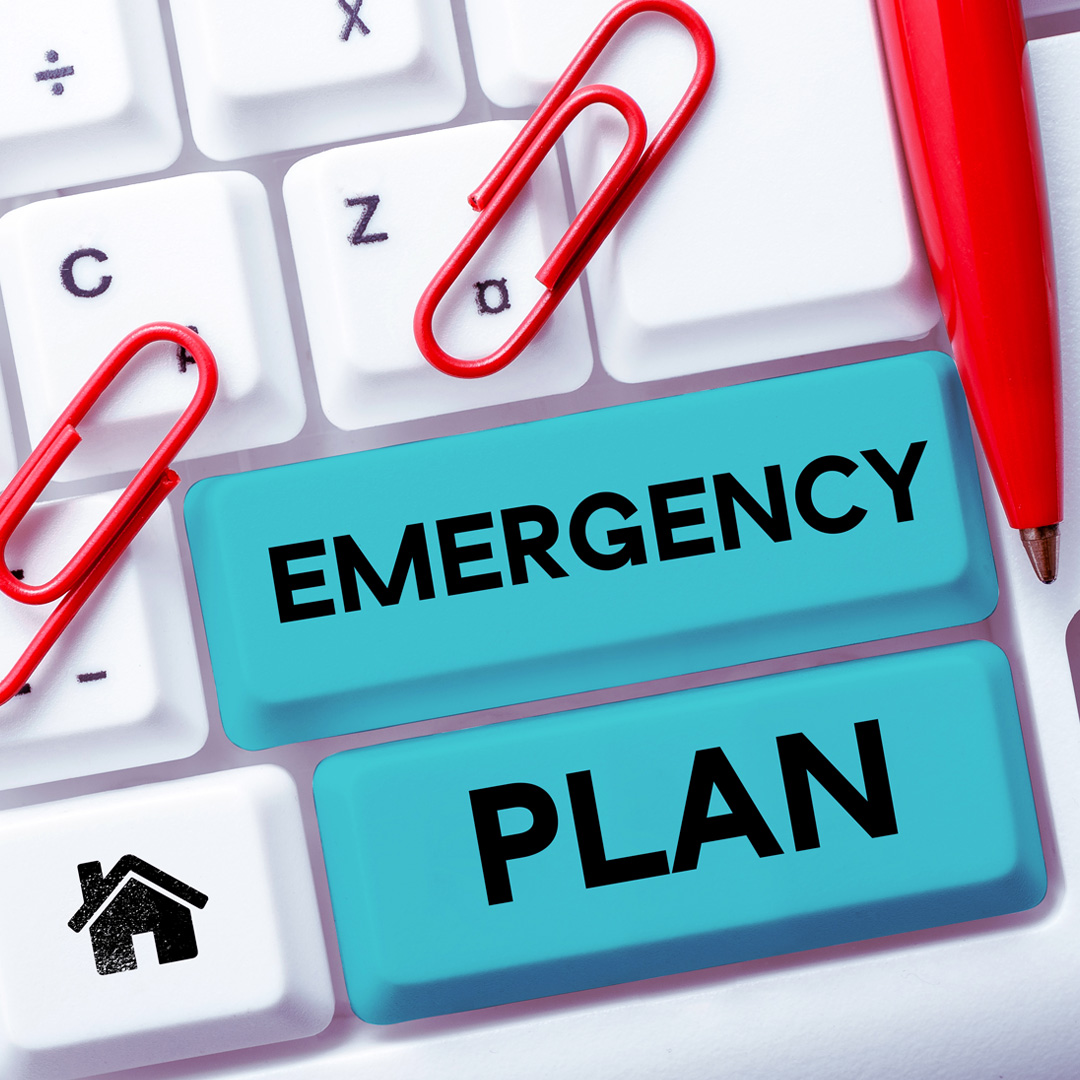Emergency Preparedness Month 2023

September is National Emergency Preparedness Month
In recognition of National Emergency Preparedness Month, here are some tips on how to plan for an emergency, communicate during an emergency, and prepare for after an emergency when you are caring for someone with Alzheimer’s or another dementia.
Planning for an Emergency
Planning is important so decisions don’t have to be made in the middle of a crisis. Consider how to prepare for the types of natural disasters and emergencies that are most likely to occur where you live. Make sure to also consider your own medical and support needs as well as the needs of the person you care for.
To make your emergency plan:
- Find people you trust, such as family members and friends, who understand your situation, and talk to them about creating an emergency plan. Try to engage people who are willing to help you understand your options, give guidance or advice in your decision making, and who will ask for your input.
- When you know your options, decide whether you will evacuate or stay in place based on each situation and Emergency Alert System instructions.
- Before an emergency occurs, write your plan with the people you trust, and post it somewhere that is easy to get to, such as on your refrigerator.
- Share your emergency plan at least once a year with your medical provider and the medical provider of the person you care for. Make sure to update them with any changes.
- Contact your local fire department and police department to find out how to give them important information about your family member, including a recent photo that will help them rescue him/her if needed.
Communication Tips During an Emergency
It can be hard to communicate with people living with dementia even in the best of circumstances. During an emergency, this challenge becomes more difficult. People living with dementia may get very stressed especially if they must evacuate their home. Being surrounded by too many new people or too much stimulation may confuse or upset them.
To communicate with someone with Alzheimer’s during an emergency try to:
- Be at eye level with them, call them by name, wait until you are in their field of vision, and identify yourself and the reason for your interaction.
- Set the tone by talking in a warm, easygoing manner. Smile often, and pay attention to your tone of voice, facial expression, body tension, and mood.
- Speak slowly and clearly and pause in between sentences. Allow time for them to process what you’re saying.
- If they don’t understand, try to direct them by using gestures while you talk.
- Respond to the emotions they express, rather than what they might say.
- Provide information using concrete terms and familiar words. They may respond better to “Do you need to pee?” rather than “Do you need to use the restroom?”
- Be prepared to repeat information, choices, and directions. Repeat things in the same order, using the same words.
- Reassure them that you are there to support them.
After an Emergency
A person with Alzheimer’s can feel scared even after an emergency is over. It’s important that they have and follow a regular routine as soon as possible.
The trauma of an emergency or disaster, along with possibly having to relocate or go through an evacuation or any emergency situation without your regular routine, can make you feel helpless. Despite the difficulties after an emergency, there are people who can help you and who can make your recovery easier.
It might be hard to contact state and local agencies if the whole region or state is shut down because of an emergency. But there are other agencies that can still help you.
- American Red Cross – Find your local Red Cross chapter online at https://www.redcross.org/find-your-localchapter, org call 1-800-RED-CROSS (1-800-733-2767). The Red Cross Safe and Well website can help families and friends locate someone who has been affected by a recent disaster.
- Federal Emergency Management Agency (FEMA) – Phone: 1-800-621-3362 (711 or Video Relay Service Available); TTY: 800-462-7585 – Text: 43362 (4FEMA). Use FEMA’s text message program to search for open shelters and open disaster recovery centers in your area and receive safety tips to help you prepare for common disasters.

